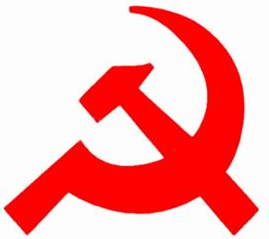N°11-01/03/2021 Wheat + 20%, corn + 30%, soybeans + 50% The prices of these strategic products are soaring, the causes are multiple, and the consequences worrying in a world in the hands of capital.
The prices of these strategic products for both food and animal husbandry are subject to various kinds of influence:the geopolitical situation, therefore the state of the market, the limitless greed of the behemoths of world trade and quite at the margins, the natural conditions often presented as an inherent fatality to working the land.
In the same way, the pay of the producer's labor, although very variable, does not carry much weight in the chain from producer to consumer.
The Covid pandemic creates a lot of uncertainty and fear of the future that leads to ensuring food security by storing agricultural raw materials, either for reasons of political stability or to rake in hefty profits.
Hefty profits for multinationals trading in these products. Number one, US-based Cargill with operations in 70 countries just raised a net profit of $ 3 billion in 2020. Called the "world's worst enterprise" for child labor and deforestation, it also holds a large share of the food weapon that threatens populations. Bunge, also an American, is not far ahead of the Franco-Swiss Dreyfus. While these three companies remain dominant in the cereals market, they are beginning to worry about the emergence of new Asian, especially Chinese, competitors as part of the re-balancing of capitalist forces in the world.
In fact, it is the exceptional growth of Chinese purchases of corn and soybeans that is causing global demand to explode. The much faster than expected reconstitution of its pig herd decimated by African swine fever, increased demand and the prices of Chinese corn exceeded those of imported corn despite the transport costs!
Egypt, the world's largest importer of wheat, has increased its purchases by 40% to meet its domestic demand. Its traditional supplier, Russia, has closed its market and imposed taxes to secure its stocks amid fears of a supply disruption despite a bountiful domestic harvest.
In addition the climatic uncertainties for the southern hemisphere, the phenomenon of La Niña is likely to cause, this year, a great drought threatening the crops of Brazil and Argentina, both large exporters.
The energy sector is also participating in the price hike by diverting corn or rapeseed crops from their food use to make ethanol. This is no longer a marginal phenomenon since it concerns 30% of American corn and 70% of French rapeseed - the residues are used in cake for livestock feed. Finally, pension funds, which until then had only invested in agriculture to finance land grabbing, are showing increasing interest in basic food production. Signs of distress are already reaching us from countries very dependent on cereal imports, such as Tunisia (voir Hebdo n° 700) and Lebanon, where demonstrators are demanding bread. But also from Yemen, Libya, Bangladesh, Morocco, Algeria, Egypt. Excluding food already affected, the induced increases in animal husbandry are poised to drive up the prices of poultry, beef and pork quite rapidly around the world. According to the IMF, some 30 countries and 265 million people are at risk of acute food insecurity, an elegant term for hunger, food shortages and famines.
In the poorest countries, the Covid itself and the constraints it generates quickly get the better of more or less informal businesses providing - or not - daily food.
Again according to the IMF, extreme poverty, less than $ 1.90 per day, increased by 20% in the second half of 2020, with millions of workers deprived of all resources. According to the FAO, food prices rose by 2.2% for the month of November alone, the 7th consecutive month of increase. As a reminder: before the Covid, the hunger situation was already 10% of the population undernourished and 20,000 deaths per day.
This pandemic, after throwing a harsh light on the state of health systems in the capitalist world, also sheds light on the logic whereby the poorer the poor, dying of starvation, the fatter the rich. This is the law of capitalism: exploitation of peoples for maximum profit.
It is urgent to fight harder and harder everywhere, and get rid of this deadly system to build another one where the fruits of the land and of labor feed the peoples.


